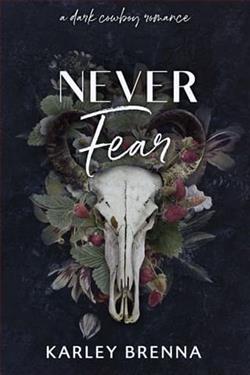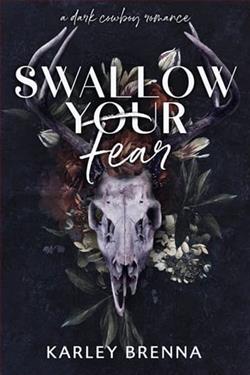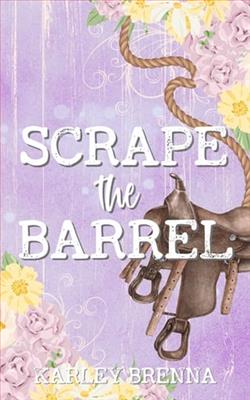Page 38 of Lovely War
He must regret it now, but there’s still a hint of childlike amusement in his voice as he imagines the shot. He’s young, so young. He’s a kid who loves to play. But he’s also a man for whom massive expectations have been set. The great hope of Ardwyn, the next big NBA star, the pride of his community, his family’s future. How could anyone be equipped for that responsibility? And with the media, fans, and critics watching, waiting for something to happen. They want to be entertained, by either transcendent performance or calamitous failure. They don’t really care which.
If this gets out, the pundits will sink their teeth in and let his blood drip down their chins. It will fit their laziest narrative: He’s reckless, all physical talent and no brains. Can an NBA team trust him? Does he even take this seriously? It could affect his draft slot, cost him unfathomable amounts of money. Salaries are high no matter what, but the average NBA career lasts fewer than five years. There are no guarantees.
Dad was one of Quincy’s first mentors, teaching him the fundamentals of the game, helping him focus as the hype about his future ratcheted up. Dad is gone, but I’m here.
The question comes like a train charging in at top speed from the part of my brain where all my most reckless thoughts originate: Why does anyone need to know?
He’s a good kid. He needs more time to adjust, mature. Who would it hurt, if the press never found out?
But that means no one here can find out either.
Ben. Shit. The realization crashes into me, that he’s still here. Close enough that every morning, I know whether he’s starting the day with iced coffee or hot, because when it’s iced I can hear the cubes rattling in his cup. In an instant I’m at the door, closing it as delicately as I can so he doesn’t hear it click shut.
“Why did you come to me?” I ask Quincy.
He shrugs like the answer is obvious. “I couldn’t go to anyone else. I trust you. You have hours of tape of that mustache I was trying to grow when I was fifteen and you’ve never shown anyone.”
I offer a weak smile. “I’m saving it for a special occasion.”
“I don’t know what to do. I screwed up, and now it’s only going to make things worse,” he says. And then more carefully: “Are there cameras in the practice gym?”
Our eyes meet. I’m relieved that he said it out loud before I did. “I don’t know. I don’t think so.”
We sit in silence. I cover my nose and mouth with my hands and let out a slow breath through them, trying to regain control of my heartbeat.
He trusts me. That’s what he said. He’s watching me expectantly, waiting for me to tell him the plan with more patience than most people would have while their throbbing ankle goes untreated.
“Here’s what we’re going to do,” I say, standing, because he’s in pain and we need to decide on something. “You’re going to sober up. We’re going to call the trainer and tell him you were shooting around, as you regularly do, and your ankle gave out. If there’s any hint of suspicion from anyone, I was there, grabbing a jacket I left this morning. I saw thewhole thing happen. I’ll go over in a few minutes and make sure there are no cameras. Stay here and wait for me and keep drinking water. I’m going to put this skateboard somewhere.” My car would be best. Quincy isn’t even supposed to own a skateboard.
“Okay,” he says.
I give him a sharp nod, like a confident decision maker might do. Then I quietly open the door and shut it behind me.
When I turn around, Ben is standing in the dark hallway with his arms crossed.
I jump back. “Jesus. What are you doing?” I don’t know why I ask. The fact that he’s standing here like this means Quincy and I were, in fact, talking louder than an iced coffee, and therefore, we’re screwed. I bring my arm around my back to hide the skateboard anyway.
“You cannot be serious right now,” he hisses. “You should’ve called the trainer as soon as he told you he was hurt. Instead you’re, what? Creeping around, hiding evidence?”
I drag him by the wrist into his office and shut the door. “Okay, Callahan. Calm down. Think about it. What good is going to come of this if people find out? You know the press is going to jump on him. And you know how stressed he’s been. He made a mistake.”
He plants his hands on the desk, spring-loaded with tension, the sharp outline of his forearm muscles straining. “Don’t you think he needs to take responsibility for his mistakes? Learn from them? Seriously, have you never seen what being coddled does to an athlete? He needs to deal with the consequences here.”
Only a golden boy like Ben, who’s never been treated unfairly in his life, could be that sanctimonious.
He takes out his cell phone. “I’m going to call Coach Thomas.”
“Wait,” I say, lunging forward and plucking it from his hands. “Let’s talk about this first.”
“Hey,” he protests. “Give that back.” And because I am twelve, I hide it behind my back and raise my chin.
“Ugh,” he says, and moves toward me, reaching one arm behind me and hunting for the phone. He tries not to touch me at first, plucking hesitantly at the space behind me instead. “Radford—what are you—come on—”
Fighting fair is overrated. I swivel from side to side so he can’t reach. With each twist he gets closer, until he’s near enough that I inhale a concentrated lungful of his addictive soapy smell. I press one shoulder against his torso and angle the rest of my body away, buying myself enough time and distance to slip the phone into my back pocket.
I remember too late that these pants don’t have pockets. Fuck the patriarchy.
Now my face is buried in his warm chest. My body is impossibly contorted, legs in one direction, shoulders in the other, and I lose my balance. Before I topple over, he anchors one hand on my hip, and I squeak in surprise. His grip is careful, but firmer and more confident than I ever would’ve expected from a Goody-Two-shoes like him, and everything goes fuzzy except that exact spot on my body. The warmth of his palm, the grasp of his fingers, all imprinting on my brain, distracting me.















